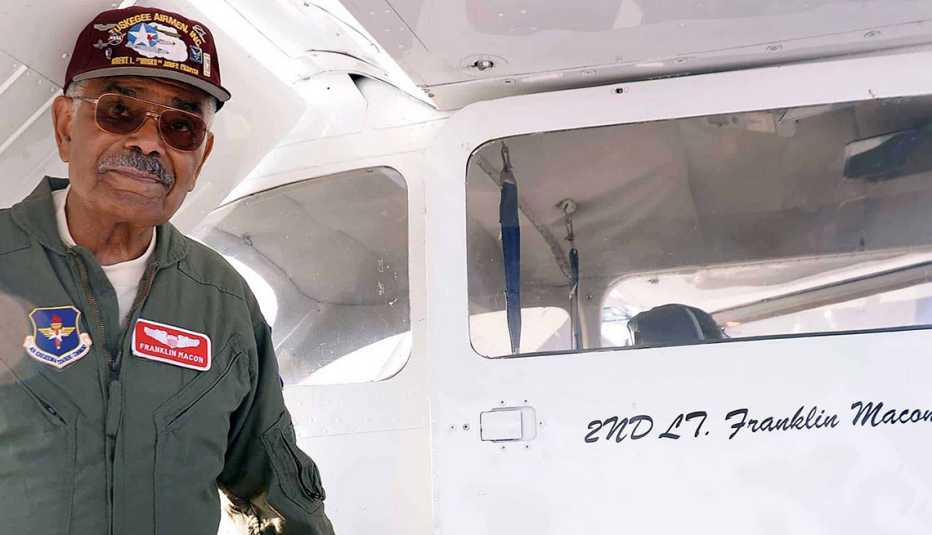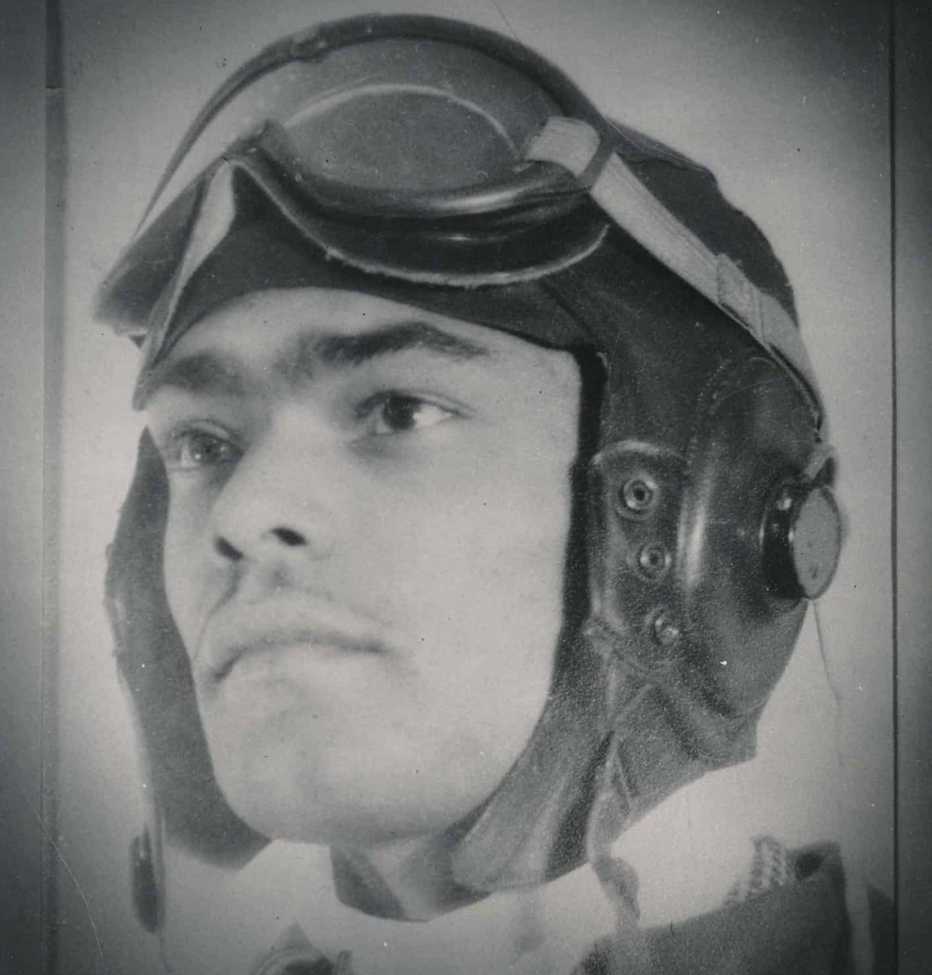Staying Fit


In his 97 years, Frank Macon has overcome dyslexia, was one of the original Tuskegee airmen, spent a career working at a military facility, raised a family, cowrote an autobiography and was awarded one of the nation's highest honors. But he said he might be proudest of being inducted into the hall of fame — at his high school.
"Oh, my teachers would be rolling in their graves,” said Macon, of Colorado Springs, Colorado. “In the early days, I could barely get an ‘F’ in recess."


AARP Membership— $12 for your first year when you sign up for Automatic Renewal
Get instant access to members-only products and hundreds of discounts, a free second membership, and a subscription to AARP the Magazine.
Macon has a lot of stories like that. His life is one of learning struggles and curiosity, of service and stubbornness, of reward and disappointment. But more than anything else, it is a series of fascinating life tales.
He shared some of those in October, when Wish of a Lifetime from AARP granted his request to help “all kids to live with purpose and conquer their challenges.” He held a videoconference with students from Denver Academy, an independent day school for diverse learners, where he answered questions about his Tuskegee service and the challenges he faced with dyslexia.
Macon has many more life tales. Take, for example, his Tuskegee training during World War II. He was one week from graduating from the prestigious program in Alabama that trained African American aviators when his turn to fly in a T-6 trainer planer came up. He also had a serious head cold. This was a bad combination.
"Well, I did a power dive: Pop! — both eardrums,” Macon said. “They sent me to Scott Field [in Illinois, near St. Louis], to the hospital. I was there recovering when the war ended, so I was never in combat."
His recovery took a year, but Macon eventually received his commission in the Army Air Corps Reserve. It was a major accomplishment for someone who was born poor to a teenage mother, who grew up before and during the Great Depression, and who, admittedly, had a troubled childhood.
'Full of devilment'
"I was full of devilment as a kid,” said Macon. He suspects this was a combination of his curiosity about mechanics and his difficulty in learning because of the dyslexia, which went undiagnosed in his childhood.
"Back then I had no idea I was dyslexic. I just knew I couldn't read or do math. But I could tear anything apart and rebuild it. ... The mischief is how I learned stuff, because book learning was not for me."
Macon struggled with reading, but he had an aptitude for mechanics and design. His autobiography, which was written for young readers, is filled with his drawings and designs for toys and science experiments.


































































More on Home and Family
Celebrate Veterans Day With 5 Inspiring Stories About Military Heroes
Powerful videos portray the dedication and sacrifice of America’s service members'Sky Blossom' Documentary Salutes Young Caregivers of Disabled Veterans
AARP-cosponsored film is nominated for a Movies for Grownups AwardFree Resources to Aid Veterans, Military, Their Families Amid COVID-19 Outbreak
Check out where you can find support for your health and finances